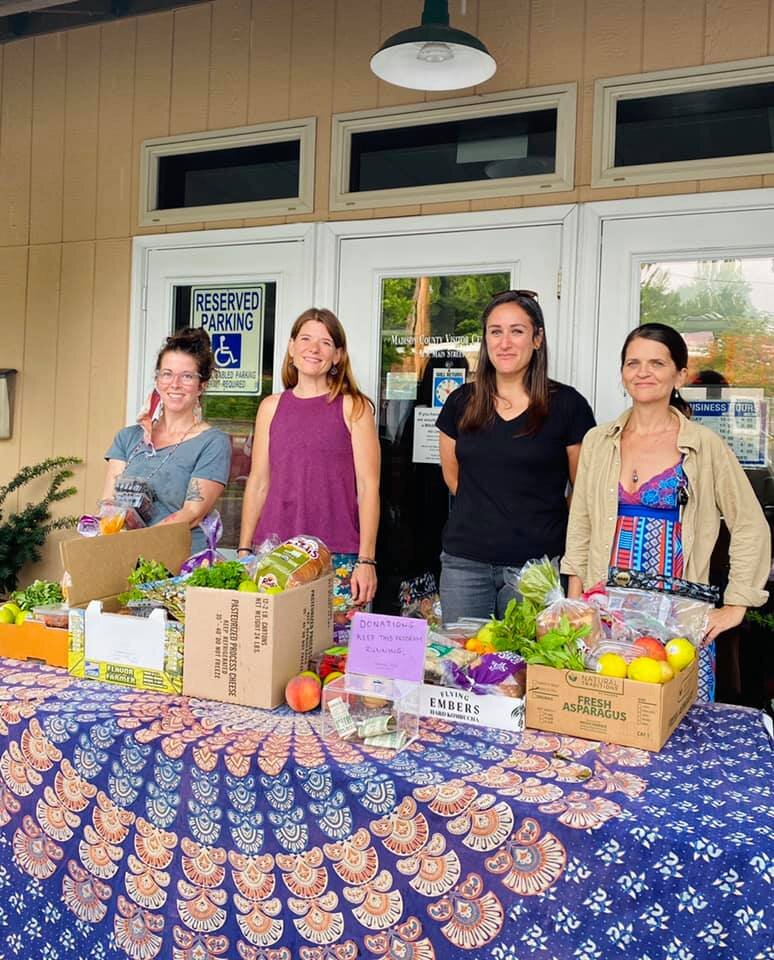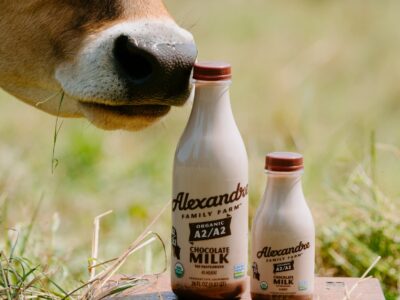Someone with a good heart can do some wonderful things. Someone with a wildly good heart can do some wildly wonderful things. Beryl Lynn is someone with a wildly good heart. She is the guiding light behind the Wild Heart Farm & Sanctuary, which she opened in 2019 in Mars Hills, North Carolina, just north of Asheville.
Photo Courtesy Wild Heart Farm & Sanctuary
A 501(c)(3) nonprofit organization, Wild Heart delivers its good work in a trio of ways. It is home to an animal sanctuary and a community garden, as well as a food share program — all operating under the core philosophy of “Sanctuary for All” that involves showing compassionate support to local animals, humans, and plant life alike.
“I started Wild Heart as a way to give back and create a model that works towards being self-supporting — or as close as we can get,” Lynn explained to Garden & Health.
Providing a sanctuary for farm animals has been a prime purpose for Wild Heart since it started. “There is a great need,” Lynn shared, “for more animal rescues and sanctuaries that cater to farm animals.”
Over the years, it has given a home to a menagerie of creatures, including alpacas, pigs, goats, geese, and various farm fowl. Some of these creatures were suffering from abuse or abandonment, while others needed new homes because their prior owners could no longer keep them. However, starting in 2024, Wild Heart will be completely focused on equine animals with the goal of adopting its horses and donkeys.
Photo Courtesy Wild Heart Farm & Sanctuary
Wild Heart, as Lynn told the Asheville Citizen-Times in 2021, “was always intended to be more than ‘just a sanctuary,’ but a community, a lifestyle, a participatory dream.” Towards that end, Wild Heart launched a “giving garden” in 2020 that utilizes permaculture and holistic methods. Annual and perennial vegetables and fruits are grown in the community garden along with flowers, nuts, and culinary and medicinal herbs. It’s also all a collaborative effort.
“We don’t rent plots,” Lynn elaborates, with the food grown available to the garden’s volunteers, who are known as “stewards” at Wild Heart.
Photo Courtesy Wild Heart Farm & Sanctuary
The majority of the crops, she reveals, go toward the free food share that Wild Heart has operated once a week, all year round, for over the past three years. The garden-grown produce is supplemented with donations from a local natural grocery store.
Done entirely by volunteers, the food share runs very simply: people drive up and collect a box. In 2023, around 38,000 pounds of free food was given out to the local community.
The program is an effort not only to decrease waste but also to put into practice the Wild Heart belief — as stated on its website — “that healthy food should be accessible to everyone, no matter their financial status.”
Photo Courtesy Wild Heart Farm & Sanctuary
Lynn says that the people helping to make Wild Heart what it is are called “stewards” because “everyone that gets involved feels as if they are actively part of building something.” The contribution contains a certain amount of creative freedom instead of just being told what to do.
She mentioned, as an example, one steward who works as a ranger but comes to Wild Heart on his free weekends to help build trails. It is all part of Wild Heart’s full-circle, nurturing approach — whether it concerns the community, the animals, or the land — that makes this farm and sanctuary such an inspiring endeavor.





